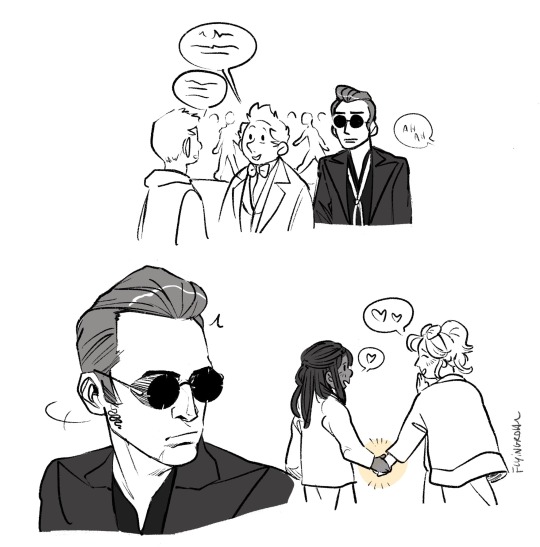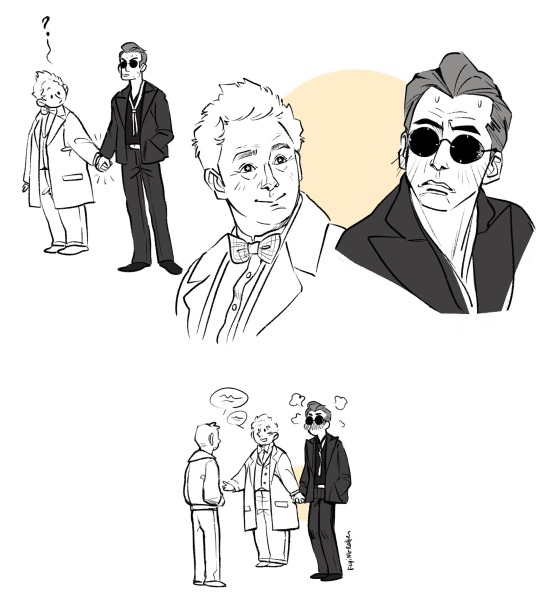Text
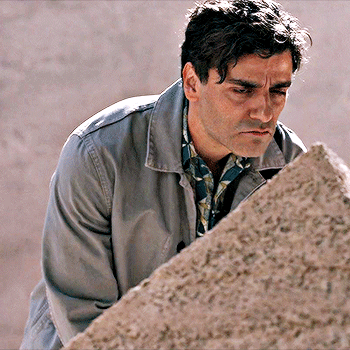
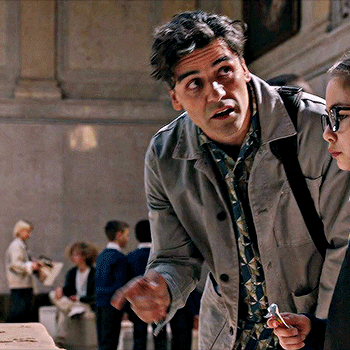



Steven Grant in 1x01 - The Goldfish Problem
Moon Knight (2022)
399 notes
·
View notes
Note
I don't follow any GO meta except what you post, so I'm wondering: has anyone gone into detail about how the Final 15 reverses Crowley and Aziraphale's roles from the rest of season 2?
Specifically, the whole season there's a disconnect because Crowley is desperately trying to protect Aziraphale while Aziraphale is focused on their relationship and taking steps to make it clear they're ~together~. Then, of course, it switches to Aziraphale willing to do anything to protect Crowley while Crowley finally works up the nerve to confess.
I just think that's neat.
Augh. You're right and that's so chewy. Crowley spends the season on edge, because he feels the danger they're in, but he thinks after the whole Gabriel situation is resolved they'll be (relatively) in the clear. Aziraphale though, he doesn't feel that this situation is any more dangerous than normal. He doesn't know hell's part in this and he doesn't fear heaven—or, that's not quite right. Aziraphale's just been simmering in a low level of fear coated over with denial since Before the Beginning, it's his normal. I think Aziraphale isn't truly afraid until the Metatron makes him realize Crowley isn't as safe as Aziraphale has been assuming.
Welp. Here's to them getting on the same page in season three! 🥲
9 notes
·
View notes
Text
goodnight everyone (:
do your daily click
spreadsheet of families in Gaza you can help today
donate to:
Buy an e-sim
Help diabetics in Gaza
The PCRF
Anera
UNRWA
Taawon
Help Gaza Children
Sudan Tarada Initiative
Help a Sudanese family escape conflict
Darfur Women Action
Ramadan for Sudan
Period products in Sudan
Sudan Emergency Appeal
101K notes
·
View notes
Text
I’m thinking that the conversation on the wall as the humans made their way away from Eden was a major formative moment for Crowley.
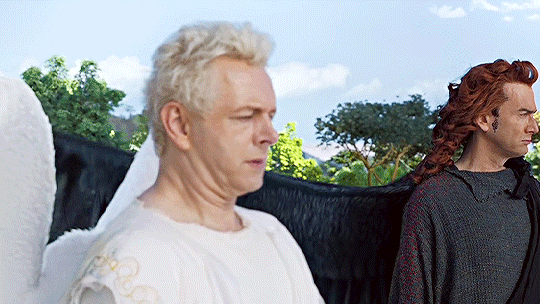
When Crowley says “You’re an angel, I don’t think you CAN do the wrong thing,” he is absolutely yanking Aziraphale’s chain. The book explicitly says it’s sarcasm and in the show, David Tennant’s delivery makes that clear with his smirk and sneery tone.
But when Aziraphale innocently takes the comment at face value, Crowley lets him think it was sincere. It’s his first act of kindness toward Aziraphale. My reading is that Crowley is happily surprised that an angel would allow himself to be comforted by his words and it takes away his desire to tease. He got his first little taste of doing good AND HE LIKED IT!
That interaction is perhaps the first time Crowley realized that he’s not necessarily cut out for sowing misery.
Also, consider his shock at Aziraphale’s admission.
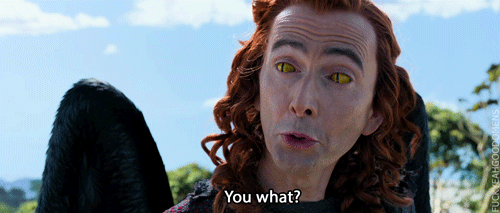
Crowley was told to come to Eden and make trouble so he did. He doesn’t seem to have thought about it at all, just got an order and executed it. What if learning that Aziraphale has given his sword away is the thing that makes Crowley realize that he, too, can make his own unexpected decisions.
It was Crowley that gave free will to the humans, but maybe it was Aziraphale that made Crowley realize that he could also have free will. Even though Aziraphale hasn’t embraced his free will, he has perhaps just given Crowley the impetus he needed to do so.
And later, Crowley returned the favor when he explained about going along as much as you can. That was painful for Aziraphale but helped him to be more himself. It was a moment when he realized, like Crowley on the wall, that if doing good means breaking the rules sometimes, then sometimes that’s what must be done. In his guilt and fear, he didn’t put that together in Eden, but Crowley showed him at Uz.
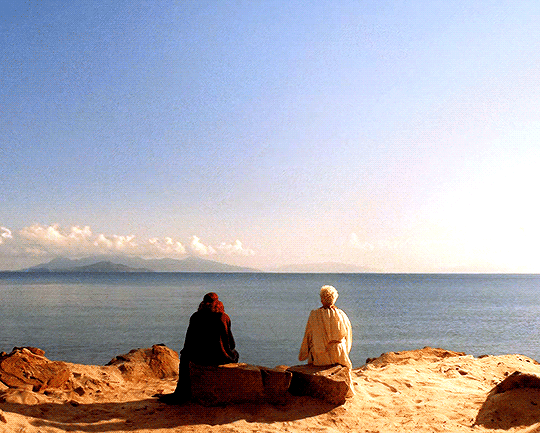
Anyway, I’m rambling, but these two have made each other better, and happier, since the world existed and that’s just lovely.
2K notes
·
View notes
Text
“The farthing… has vanished”
Remember that line from the Nazi Zombie Flesheaters minisode? Sick and twisted. And we need to talk about the reason why, even though the magic trick in question is nowhere near as spectacular as the Bullet Catch. Let’s start with a quick recap:
The farthing was a British coin worth one quarter of a penny, discontinued in 1961 due to its plummeting worth. The reverse featured the image of a wren, one of Britain’s smallest songbirds with plumage in rather drab shades of beige and brown. Reminding you of someone?
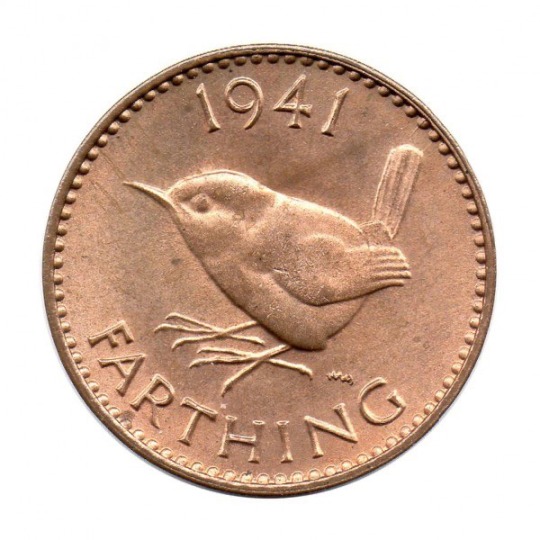
A popular design of a sixpence, the bigger coin in this set, minted in the 1920s and 30s depicted oak branches with acorns. Which means that seen from close quarters, so basically Crowley’s perspective, Aziraphale’s vanishing coin trick leaves empty branches with no bird in sight.
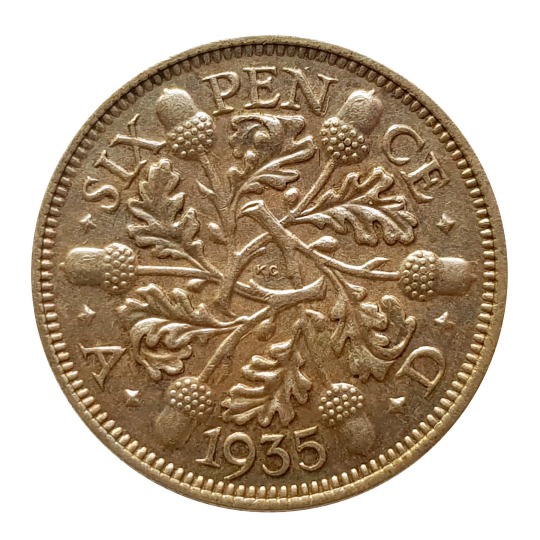
As if that image wasn’t traumatizing enough for almost everyone in the Good Omens fandom post S02E06, the etymology of wren’s name in most European languages refers to royalty in some way. Like a literal king or otherwise supreme bird. That’s why killing a wren or harassing its nest is traditionally associated with bad luck. In certain parts of France it’s still believed that the robbing of a wren’s nest will render the culprit liable to be struck by lightning.
In Irish the wren is called a trickster, which connects to the ancient (as in: mentioned by Aristotle, Aesop, and Pliny) fable on how wren became crowned in the first place — by proving that intellect beats strength:
On one occasion a general assembly of birds resolved to chose for their king that bird which could mount highest into the air. This the eagle apparently did, and all were ready to accept his rule when a loud burst of song was heard, and perched upon the eagle’s back was seen an exultant wren that, a stowaway under its wing, had been carried aloft by the kingly candidate. The trickiness angered the eagle so much, says one tradition, that he struck the wren with his wing, which, since then, has been able to fly no higher than a hawthorn-bush. (Ernest Ingersoll)
In art and folklore this little bird symbolizes rebirth, immortality, protection, and the promise of spring. As a luckbringer it was supposedly present at the stable in Bethlehem when Christ was born; and and Irish proverb runs: “The robin and the wren are God’s two holy men.”
But there’s also a catch. According to legends, it was the flapping of the wings or the song of the wren that betrayed the first Christian martyr, Saint Stephen, while hiding from the mob, and led to his stoning by the Sanhedrin — the highest tribunal consisting of the Head Priest and the Jewish elders.
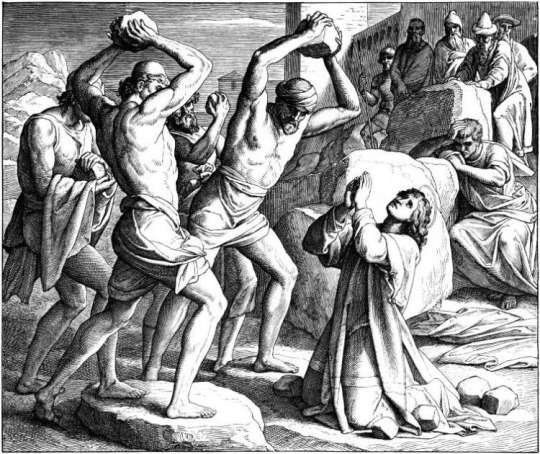
That’s why December 26, his remembrance day, is celebrated in the UK and Ireland as Wren Day. Its highlight was a traditional bird hunt, where the wren as king of the birds was hunted and subsequently paraded through the town and rural areas on top of a pole or holly branch, decorated with ribbons and colored paper, as a substitute of the ancient human sacrifice of the Year King for winter solstice. The wren boys still travel from door to door singing, dancing, and playing music, demanding money to “bury the wren”, but fortunately no more animals are harmed in the process.
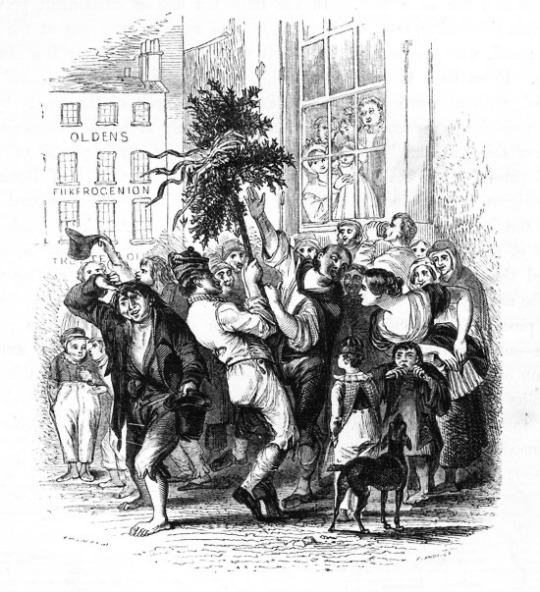
With Aziraphale being chosen as the new Supreme Archangel and literally disappearing from the face of the earth in the season finale, his becoming a scapegoat or a sacrifice to a greater, communal goal might be a real possibility when something goes wrong with the Second Coming. The good news is that this level of danger should be enough to get the Ineffable Husbands back on speaking terms.
367 notes
·
View notes
Text
Best of Neil's stage directions/commentary in the good omens s1 script book
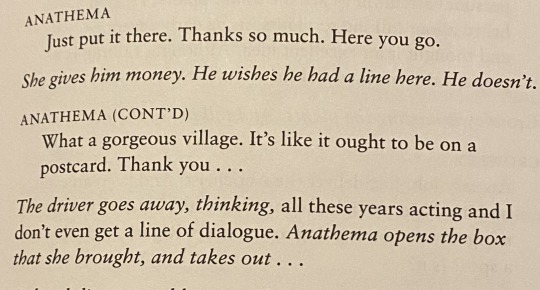


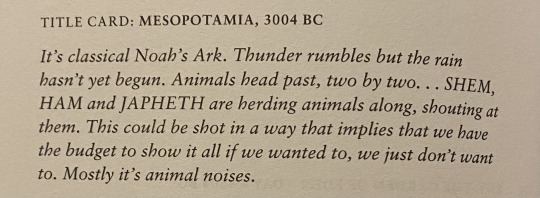

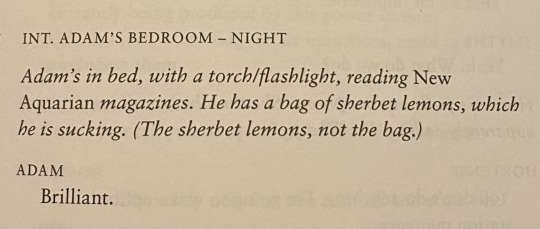






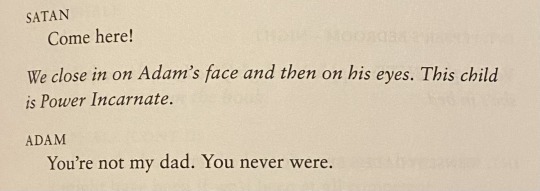
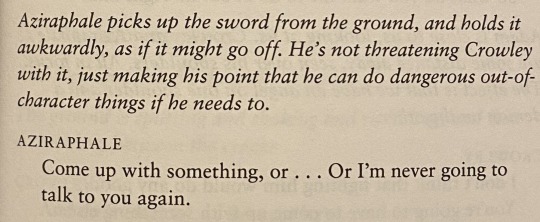
I went back and read this to help me cope after s2, as one does
31K notes
·
View notes
Text
From me and you to the world and back again
This is a follow-up to this post about Aziraphale as collectivist and Crowley as individualist.
You know, incidentally, I still struggle with those terms, because they usually refer to real-world politics, and that's...not exactly where I'm trying to go with this. I mean yes all art is political and so are all interpretations, but I'm not trying to imply that Aziraphale and Crowley necessarily embody any specific real-world movement. I think they embody things everyone has to deal with: Who am I and where do I belong?
The first post was all about how each character represents collectivism or individualism as a concept. But something much more interesting happens when you consider their relationship, and how it encourages them to grow out of their original mindsets. It makes collectivistic Aziraphale think about individual perspectives, and it gets individualistic Crowley invested in the bigger picture. They make each other more well-rounded. This strength of their relationship persists even through the Final Fifteen Minutes of Season 2.
Aziraphale, my supposed collectivist, has character growth that relates a lot to his inner self, his certainty about who he is and how he is different. The freedom to explore himself as a unique person, separate from the rest of Heaven - individuality, in a single word - is what his relationship with Crowley has given him.
Aziraphale doesn't just "need" individuality because it's the moral of the story; he needs it because he loves it and it opens up a whole world of other things he loves. Aziraphale loves being himself, with all his charming quirks, and he loves collecting unique things, and he loves Crowley.
But preserving those things, even before enjoying them, will require thinking and acting for himself, and you can't master the skill of thinking and acting for yourself by leaning on someone else. So Aziraphale needs to secure his ability to stand on his own two feet, outside of Crowley's presence.
Crowley's character growth relates to his relationship with the world, how he can belong, and what roles he can play outside of the two he's already rejected (angel and demon). As an outsider to the only two "sides" he's ever believed he could be part of, he needs to find where he truly belongs. Aziraphale's gift to him is a way to belong on Earth.
And again, Crowley doesn't just "need" to belong somewhere because we said so. He wants to belong somewhere he can choose. He hates the constrictive Heaven and Hell system, and he's fascinated by the repeated acts of engineering and creation that humans are capable of. He likes participating in it in his own ways, too! Having a life on Earth fulfills Crowley in a way that being even the best angel or demon in the universe never could, because deep down, Crowley wants a choice, and having a predetermined role inherently takes that away from him.
But Crowley can't discover his place in a huge, wide, diverse world of choice after choice by focusing on just ONE priority and ONE relationship. So he, too, needs to practice his growth away from Aziraphale.
The irony here is that to best receive each other's gifts, they need to part for a while. And yet, once they accomplish this, they might be better at meeting in each other's original comfort zones.
71 notes
·
View notes
Text
Exactly what are the different exactlies?
During this season, it's pretty clear that Aziraphale and Crowley both adore each other and humanity and want very much to be together. It's also pretty clear that, even before Heaven came and made Aziraphale an offer he probably couldn't refuse, he and Crowley weren't quite on the same page regarding...well, just what they are.
What the heck? How can their feelings be so mutual and so out of sync?
Well, I always said Aziraphale was the collectivist and Crowley was the individualist, and Season 2 has only made me more certain of it. These sound like such boring and dry concepts, but they get to the heart of even their most extreme issues - for example, Aziraphale's denial about Heaven as a dangerous place originates with his incredibly deep-seated need to believe in and belong to a collective.
At his worst, Aziraphale can subsume Crowley - jumping so enthusiastically on the "our car" bandwagon that he changed a bunch of things about the Bentley is an excellent example of how he was basically ready to assimilate Crowley into his own identity. And, of course, had he actually brought Crowley back to Heaven, that, too, would have taken away everything that makes Crowley himself. This is Aziraphale being a "rebound mess," feeling at loose ends because he's lost his sense of belonging with Heaven and wants Crowley to meet all these newly-dangling emotional needs.
But at his best, Aziraphale helps connect Crowley to others and to the world. He's usually the one introducing individual humans to Crowley. He gives Crowley excuses to be helpful, both to him and to others. He pulls Crowley into fun, more pleasurable human activities, like eating oysters at Petronius's and watching Shakespeare plays, when Crowley is having trouble seeing anything but work. At the end of both seasons, Aziraphale has been the one who insisted on actively pushing for a greater cause.
Of course Aziraphale was drawn back into Heaven. Whether you're considering his weakest points, like his need for approval from anyone he believes has authority, or his strongest, like his genuine wish for things to be Better For Everyone, he leans into collectives.
At his worst, Crowley can isolate Aziraphale. Aziraphale is sort of Crowley's one major interpersonal commitment, and while Aziraphale enjoys this, it does create a lopsided situation where they're each focused on different things. And Crowley loves humans conceptually, but because he wants to avoid the pain of getting attached to mortals, he is pretty quick to let his connections to humans go. While influencing Aziraphale away from Heaven is a good thing, Crowley doesn't have another very strong community to influence Aziraphale toward.
But at his best, Crowley has helped Aziraphale develop himself outside of the corrupt institution that has tried so hard to crush every ounce of conscience and individuality out of him. Many of the Earthly pleasures that Aziraphale tries to draw Crowley toward are things that Crowley introduced him to in the first place! Crowley's individualism encourages Aziraphale to try things that he's been conditioned not to try, and then Aziraphale's instinct for getting attached to things he enjoys can take over.
Of course Crowley has to think of himself and Aziraphale as an isolated unit. That's a clear-eyed view of what they really are in the world of immortal beings.
Now, I've argued before that Heaven is all about the Collective and Hell is all about hard-scrabble individualism. We have these two Sides, one of which demands its angels give up all individuality and follow the group at all costs, and the other of which demands its demons constantly fight for their own survival with a desperate scarcity of space and resources.
It's through time on Earth and the things they admire about each other that Crowley and Aziraphale have become different from Heaven and Hell, respectively. Aziraphale is thrilled to have discovered himself, someone who exists outside of Heaven. Crowley, meanwhile, is thrilled to connect with someone else in a gentle, intimate way that Hell would never allow. But Aziraphale still has that need to Belong baked in, and Crowley will always need to be his own boss with his own priorities.
Fortunately, there is a "side" that is really very good at creating smaller, more intimate groups within larger societies, fulfilling both needs, and that is Humanity.
364 notes
·
View notes
Text
I keep going back and forth on how much I think Aziraphale understood the Metatron's offer as an implicit threat right off the bat. How much of 'Heaven is the side of Good' was sincere, felt-it-in-his-marrow sentiment, and how much of it was a desperate lie, or a desperate attempt to convince himself that he and Crowley were about to be given what he wanted, or a desperate attempt to harness Heaven's power for his own purposes.
I have kind of shifted to believe, though, that maybe Aziraphale's character development doesn't have to be exactly "learning that Heaven is bad." Maybe it's OK, from a character development standpoint, if he already knows that, at least 75% of the way.
Because I actually think there's something deeper than just "Heaven isn't good" that Aziraphale has to go through: "You can't violate free will even if your intentions for people are one thousand percent good and pure and kind." This is the core reason why Heaven is "irredeemable," so to speak: its whole purpose is to "mess people around," as Adam Young would say. Even if Aziraphale could walk in there, instantly dominate the Metatron, stop the Second Coming, and dedicate all of Heaven's operations to Making Humanity Good, it still wouldn't be okay.
Like, Aziraphale needs to value free will for its own sake, rather than as a means to a Good end. This feels more all-encompassing of both the philosophical conflict between Aziraphale and Crowley and the alarming behavior we've seen from Aziraphale this past season (controlling people's mood and behavior at the ball, for example).
It's also a compelling philosophical conflict because accepting free will for what it really is is frightening. Sometimes you will watch people be self-destructive. Sometimes you will make yourself vulnerable to other people's choices and they could hurt you or your loved ones. Heck, when Crowley had a chance to give a bunch of humans the ability to kill each other to prove a point about human nature, he protected them from themselves!
But on the scale of the whole universe, for free will to work like it's "supposed to," like Aziraphale says out loud it's supposed to (just before Armageddon), it has to be absolute. Having humanity pushed into the middle of a cosmic battle between Above and Below doesn't actually enable free will or any of the other qualities Aziraphale admires in the world of humanity (and Crowley).
Forcing people to choose between two sides isn't really free will.
Heck, even if the Final Fifteen of Season 2 was merely one big miscommunication, a failed bullet catch trick, that in itself could be part of the lesson. Trying to use your power (relationship) to push your loved ones (Crowley) into doing things (becoming an angel again) you believe are For Their Own Good WILL hurt them, no matter how pure your intentions are.
Evil/cruelty in Heaven will be an important part of the main conflict, I think we can say that's obvious, but Heaven's whole...thing is moving people, humans and angels and probably Hell's demons too, around like pieces on a chessboard. The entire mission of the organization would be wrong even if everyone was perfectly well-intended and nobody ever engaged in intentional cruelty and Heaven decided not to destroy Earth after all.
So, while I really can't say I'm confident in making predictions about it, I would find it narratively satisfying for Aziraphale to go up there, immediately know what's going on, and make real trouble for Heaven while still finding lots of compelling ways to grow as a character.
And lots of ways to bumble around charmingly, too. Remember that Aziraphale very smartly figured out something he was never supposed to figure out, the location of the Antichrist, and looked like a complete ding dong (I am saying this in the most loving tone imaginable) the whole time.
163 notes
·
View notes
Text
(if someone has these screencaps please add them to this post - i'm technologically challenged)
I simply cannot get over the look that passes between Aziraphale and Crowley in s2ep2 when they restore Job's children and all of the angels turn to Aziraphale and ask if they're his new children, and we can see him squirm a little and dodge the question with "they certainly seem to be!" and then a few lines later the angels turn to him with an "Aziraphale, who are they?" an inescapable question, time is limited, he can't hesitate, but he LOCKS eyes with Crowley who is leaning against a post with his eyebrows raised in a whose side are you on stare.
And then it pans back to Aziraphale who hesitates, "They . . . are . . ."
and then he has this LOOK on his face, of acceptance, of resignation, and he makes eye contact with Crowley again, and says "They are . . . his new children."
He was ready to risk it all. Fully believing that he would fall for this. That look is a surrender. And he was ready to do it too.
He holds eye contact with Gabriel, blinking a lot, but not looking away. His smile doesn't reach his eyes. There's a brief moment of relief on his face when Gabriel claps him on the shoulder and believes his lie, but he knows that God will know what he's done. He fully believes he's going to fall for this.
And he looks to Crowley again, who applauds him. Aziraphale looks like he's going to be sick.
He's had several earth-shattering revelations in the last 24-ish hours.
Crowley (the demon) is good, and he believes it with his full chest.
God plays games for fun at the expense of others, and it's wrong.
Gluttony (he ate that entire ox)
Aziraphale believes that Crowley believes that blurring the lines between Good and Evil by questioning God and thwarting the will of heaven are exactly what caused Crowley's fall. (see you in hell)
Crowley and Aziraphale are on the same side, if temporarily, holding onto each other like a rock in a storm, with Aziraphale constantly looking to Crowley for reassurance, trusting him to have his back.
he's going to fall
I just feel like its overlooked that this was the FIRST TIME EVER that they teamed up (as angel and demon) and Aziraphale was fully ready to accept the consequences of that. He found something more important than choosing sides.
1K notes
·
View notes
Text
I'm still working out what the significance of this is, but I'm now surer than ever:
In season 2, Aziraphale's bookshop is the Garden of Eden.
What first tipped me off was the end of 2x01, when Gabriel asks about Outside, and Crowley urgently warns him that he needs to stay inside the bookshop. It reverberated against the themes of season 1, where choosing freedom over safety is symbolised by Leaving the Garden. Supporting this connection, one of the songs on the season 2 soundtrack is called Leaving the Bookshop; it plays in 2x06 when Crowley escorts Nina and Maggie outside.
There's an even clearer indicator of the symbolism, though, and I am so fascinated by the implications. When Gabriel first arrives at the bookshop in a state of undress, one of the things he says to Aziraphale is:
"Who told you I was naked?"
It's a funny line but it's also surprisingly biblically significant. In Genesis, Adam and Eve's loss of innocence after eating the fruit of knowledge is shown by their realisation they are naked. In this scene, Gabriel is like them before this transgression, innocent and unconscious of his own nakedness.
But it's even more on the nose than that, because in Genesis, when God appears to Adam after he eats the fruit, Adam hides, and then admits he's afraid because he's naked. And I quote directly, Genesis 3:11 (New International Version):
And [God] said, “Who told you that you were naked? Have you eaten from the tree that I commanded you not to eat from?”
I'm sure this reference is intended. It's too similar to be a coincidence. So Gabriel's memory loss is comparable to the innocence that preceded the Fall of Man, and that's fascinating in its own right. This also makes the bookshop, where he is protected so long as he stays inside its walls, a clear parallel to Eden.
In relation to Gabriel, I think Beelzebub is Eve, offering Adam the knowledge of good and evil in the form of a fly holding his hidden memories. An argument could be made that they are the serpent to his Eve, but I think the partnered dynamic makes this a more fitting interpretation.
I'm still thinking on the roles that Crowley and Aziraphale play in this analogy. I keep coming back to Gabriel's line, "I don't go outside, and now I have two friends." If this is Eden, who are his friends? Are Crowley and Aziraphale reprising their roles as the serpent and the guardian? Are they God and Satan playing games with their own little universe, perhaps? Or are they Adam and Eve?
Obviously, if the bookshop is Eden, this has major implications for Crowley and Aziraphale too in the context of their break up. With this framing, Crowley telling Aziraphale, "You can't leave this bookshop" becomes a fascinating twist on his traditional role. He's asking Aziraphale to stay with him in blissful ignorance, rather than confront the truth of their world. I'm not arguing that this is the only level at which this line should be read, but it's one that's worth considering.
You may also notice that in light of this biblical reference, "Who told you I was naked" becomes the first time amnesiac Gabriel echoes the words of God. I'm really not sure what these echoes mean, but they sure do intrigue me.
957 notes
·
View notes
Text
Cool things I found out about the GO set on the set tour
There are multiple missing cat posters around the shops and all the pictures used are actual cats of the crew
On the graffiti in the coffee shop, theres a snake with the names Neil and Terry in it
The records in the record shop are all made up songs albums and bands to avoid having to pay for the rights (my favourite one was one in the window with a shark on a paddle board)
All the stickers in the record shop were designed in one week by a graphic design intern (theres hundreds of them)
Along with the Neil and Terry snake, theres the name of the horsemen in nickname form around the coffee shop (Pollutions is P-Boy)
Not a set thing but the head set designer and head graphic designer are mother and daughter
There are over 7000 books in aziraphales book shop
Of the lesser seen shops that only have window displays, the backdrop of the tailors shop (can be seen in the Maggie and Nina rain scene) is made of scrap air vent pieces
Also not really a set thing but the set is in the same town David Tennant is from
I think its funny the set is in a warehouse behind a tescos
Thats all I can remember rn Ill add more if I remember them
1K notes
·
View notes
Text
I've been working for a while on a meta analysis titled "the Book of Life is not a chekhov's gun, it's a red herring and a reminder of the sword of Damocles". this shit is so long and unwieldy, and I think I've realized I don't actually need it. Here's all i wanna say.
The BoL is not a chekhov's gun because it doesn't do what dumb-dumb archangel Michael naively believes, and the narrative told us this definitively by having Crowley not only question that, but offer another explanation. The BoL is not a weapon. I believe the Metatron let slip to Michael this wrong info about the BoL as part of his plot to remove aziraphale from earth/crowley.
The BoL is a red herring. Many of us are looking at it and thinking about it and theorizing about it, instead of looking where we should be. Where's that? Not sure. But if I was forced to say: Jesus fucking Christ & the book that actually matters: the book of Revelation.
The BoL also served in the narrative as a reminder of the sword of Damocles that hangs over Aziraphale and Crowley's heads: Heaven and Hell, and their power over them. The BoL represents the lack of freedom that Crowley and Aziraphale continue to experience.
um. the end
295 notes
·
View notes
Text
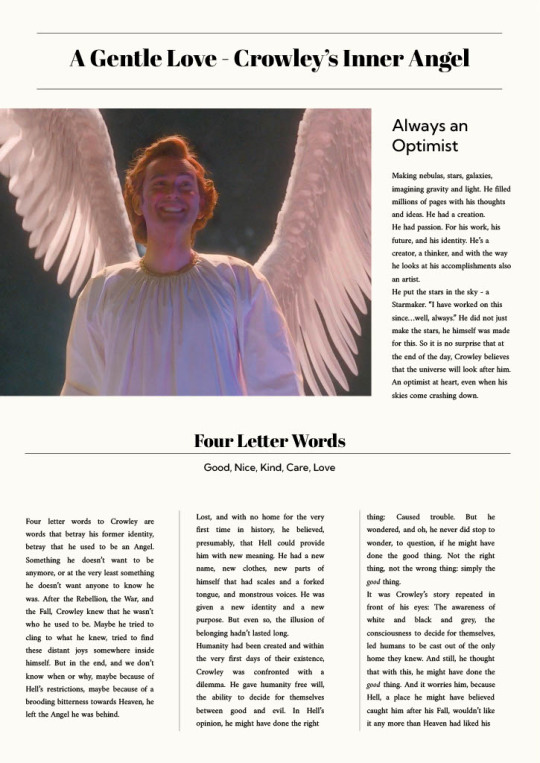

Just a little something about Crowley and Identity, Questions and Journeys. Full text for screenreaders below.
A Gentle Love - Crowley’s Inner Angel
Always an Optimist
Making nebulas, stars, galaxies, imagining gravity and light. He filled millions of pages with his thoughts and ideas. He had a creation.
He had passion. For his work, his future, and his identity. He’s a creator, a thinker, and with the way he looks at his accomplishments also an artist.
He put the stars in the sky - a Starmaker. “I have worked on this since…well, always.” He did not just make the stars, he himself was made for this. So it is no surprise that at the end of the day, Crowley believes that the universe will look after him. An optimist at heart, even when his skies come crashing down.
Four Letter Words
Good, Nice, Kind, Care, Love
Four letter words to Crowley are words that betray his former identity, betray that he used to be an Angel. Something he doesn’t want to be anymore, or at the very least something he doesn’t want anyone to know he was. After the Rebellion, the War, and the Fall, Crowley knew that he wasn’t who he used to be. Maybe he tried to cling to what he knew, tried to find these distant joys somewhere inside himself. But in the end, and we don’t know when or why, maybe because of Hell’s restrictions, maybe because of a brooding bitterness towards Heaven, he left the Angel he was behind.
Lost, and with no home for the very first time in history, he believed, presumably, that Hell could provide him with new meaning. He had a new name, new clothes, new parts of himself that had scales and a forked tongue, and monstrous voices. He was given a new identity and a new purpose. But even so, the illusion of belonging hadn’t lasted long.
Humanity had been created and within the very first days of their existence, Crowley was confronted with a dilemma. He gave humanity free will, the ability to decide for themselves between good and evil. In Hell’s opinion, he might have done the right thing: Caused trouble. But he wondered, and oh, he never did stop to wonder, to question, if he might have done the good thing. Not the right thing, not the wrong thing: simply the good thing.
It was Crowley’s story repeated in front of his eyes: The awareness of white and black and grey, the consciousness to decide for themselves, led humans to be cast out of the only home they knew. And still, he thought that with this, he might have done the good thing. And it worries him, because Hell, a place he might have believed caught him after his Fall, wouldn’t like it any more than Heaven had liked his inquiries. He always had a mind of his own, a personal moral compass. And he would need to figure out how to follow it wisely.
Outside the walls of Eden, humanity flourished. And he witnessed how humans could disappoint him, but how they could help him, too. When Adam struck the lion to shield Eve, Crowley saw that there was something inside them that was ready to fight for what they loved and treasured. Humanity was on its own side, and he witnessed Heaven and Hell use them like dolls to settle their disputes. It was then that Crowley decided to be on his own side. To go along with Hell as far as he could. And he helped humanity, helped the innocent whenever he dared because maybe he wished that he had accepted the only helping hand that reached out to him in Heaven.
He witnessed the Flood, witnessed the bet about Job, the Crucifixion, the Wars, and the Apocalypse. He moved through it all, in his own ways, and helped from the shadows, stood by himself. And no matter if angel or demon, or nothing or both, one thing carried him to safety, one thing he kept close to his heart, and that was, that no matter what happened, the universe would always look after him.
Peaceful Existence
Crowley may not be the angel Aziraphale once knew, but there is no denying that it is still a part of him. A part he might want to hide away or ignore or forget, but it is there, and he tries to navigate it, tries to find closure. Who he was is as much a part of him as our childhoods are a part of who we are. We might not want to or even be able to remember the abuse, the tears and the heartache, the longing for something we were too young to name. We might try to detach ourselves from it but as we grow and navigate our past, maybe even as we have to move on without any closure, we may find ourselves longing for what little good moments we had.
Crowley might never want to forgive Heaven and God and Hell but maybe he will come to realize that he can feel misplaced, forgotten, and hurt, and still long for the times when things were different. Long for a distance past so far gone that it becomes harder and harder to remember. Maybe he can realize, that accepting the angel he once was, doesn’t mean that he must be happy or grateful for all the horrible and grotesque things that happened to him. He can take what he wants and use it to craft something new and beautiful, something that can grow and heal his inner angel. And he might find that from time to time he can let himself be an angel. He can let himself be all those four letter words, and he can be good without belonging to Heaven.
When he moved on from Heaven to Hell and then to our side, he had found something new. A special feeling of belonging, something he could plunge himself into and fill his identity with. Something peaceful and kind. But when fragile things break, they tend to have sharp edges. And now he is alone once more and by himself. Which proposes the scariest question he ever had to ask: Who is he, all by himself? Without Heaven and Hell and without Aziraphale, what is left of Crowley?
He might find that he is everything he lost before. Heaven, Hell, Aziraphale – all have shaped his identity, and all stay with him even as he finds himself on his own side once more. Crowley contains multitudes, like all of us, and he might never get answers to all his questions, he might never find out who he really is.
Unable to answer his own questions, there will only be more around the corner. But after all, since Crowley never punished anyone for asking questions, why should he punish himself? Maybe this time he doesn’t need answers. He’s an optimist and anyway, the universe will look after him.
After all of us.
184 notes
·
View notes
Text
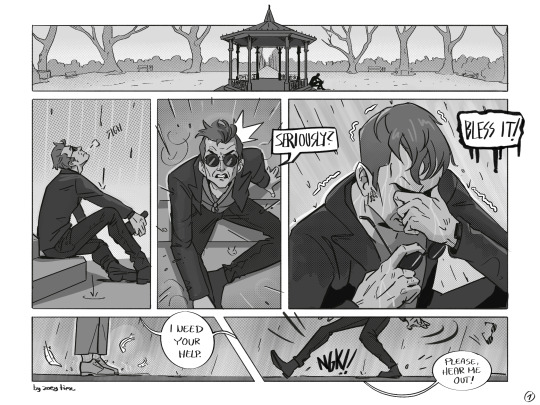
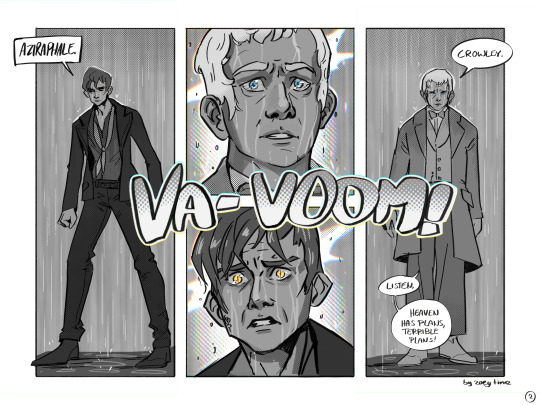
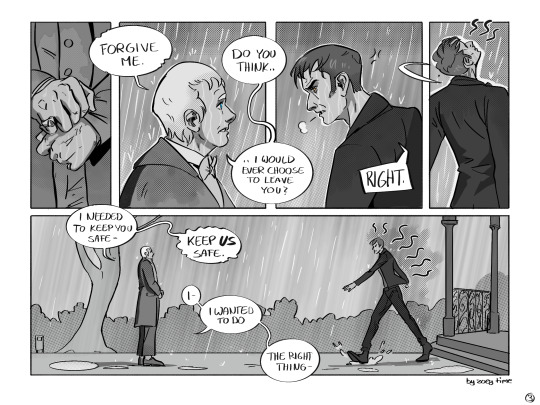
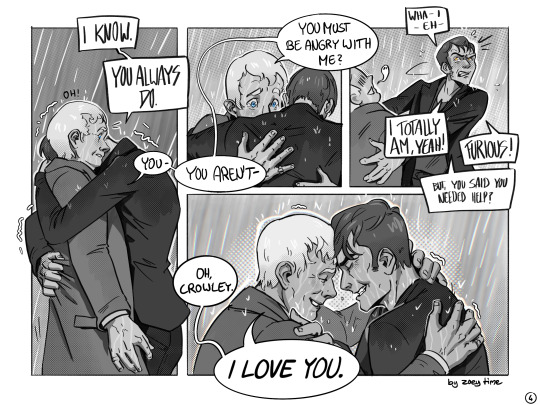
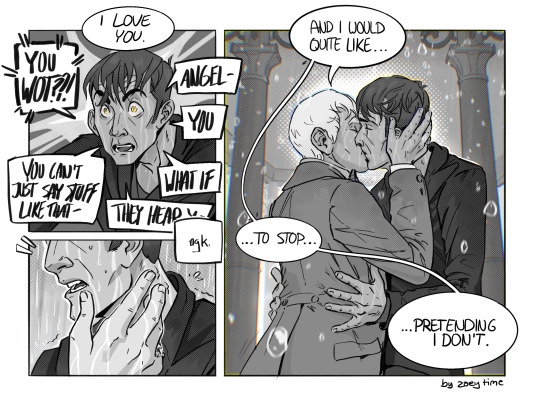
VAVOOM!
Get them wet and staring into each other's eyes, all right. I will personally see to it. >:)
find me everywhere
17K notes
·
View notes
